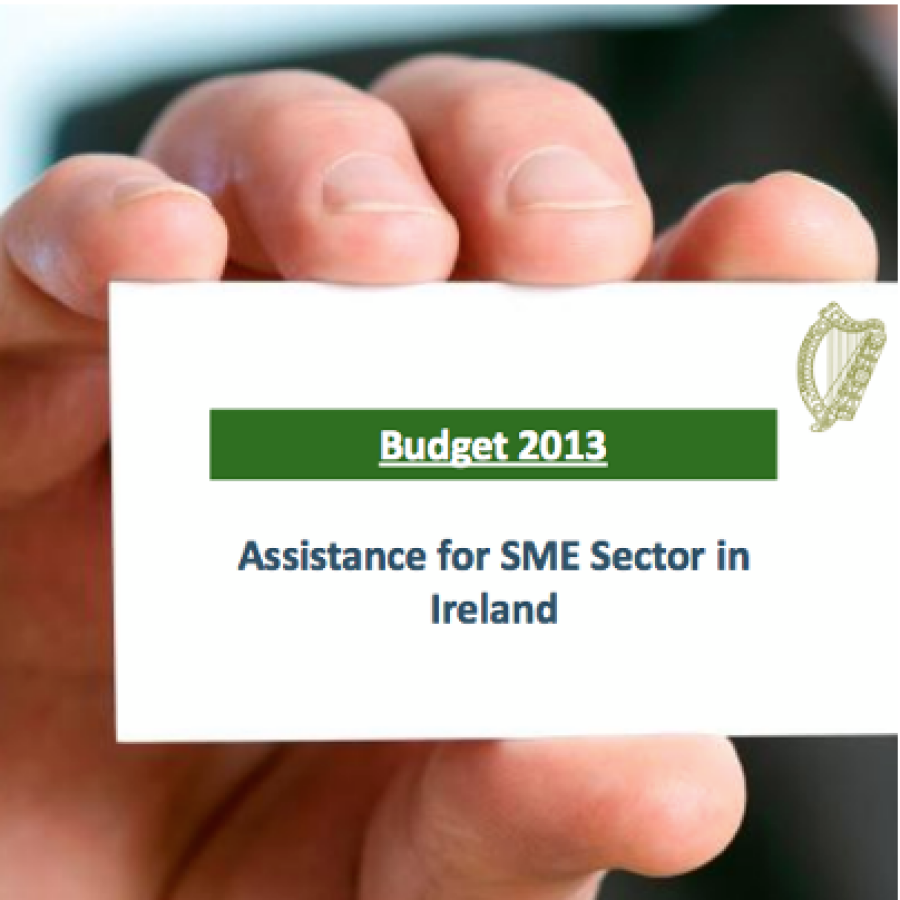
Budget 2013 was announced by finance Minister Michael Noonan to much dissension from opposition and public alike, but as expected, it has left conditions extremely favourable for enterprise, perceived as a cornerstone for hopes of an Irish recovery, with three quarters of Irish businesses declaring themselves satisfied with it. SME’s (including franchises) account for 99% of businesses and 70% of employment within the state, and so it was predictable that they would be afforded special treatment under one of the harshest budgets the state has yet seen. Fortunately, Minister Brendan Howlin indicated that this could well be the last budget announced in December, ensuring that businesses need no longer fear a sudden free fall in consumer confidence in the build up to Christmas.
In this light, Budget 2013 saw the implementation of a 10 Point Tax Reform Plan for the purposes of assisting small businesses. Some of the measures that comprise the plan pertaining to franchises include:
- Reforming the 3 year Corporation Tax Relief for start-up companies to help start-ups improve their cash flow and generate jobs.
- Amending the Close Company Surcharge to reduce the administrative burden on SME’s.
- Increasing the amount of expenditure eligible for the R&D Tax Credit to boost innovation.
- Increasing the VAT Cash Receipts Basis Accounting Threshold to aid cash flow.
- Extending the Foreign Earnings Deduction to increase overseas demand for Irish produce.
- Extending the Employment and Investment Incentive to enable businesses to access the funding they need.
- Reviewing the ‘carried interest’ provision in the tax code to ensure small businesses receive necessary funding.
- Announcing a public consultation to help businesses identify ways in which to ease their tax compliance burden.
All of these measures are hoped to stimulate small business to grow and create jobs by reducing their tax burden and affording them easier access to both capital and credit. However, the hikes that will affect every other demographic in the nation could inevitably trickle down to SME’s in all sectors of the economy as consumers are expected to be over €1,000 worse off next year thanks to a sleuth of new or increased taxes and charges. This will ultimately engender decreased discretionary spend for customers and incur reduced income for businesses.
Chairman of the Irish Franchise Association David Killeen was less than impressed with the budget, claiming it damages the indigenous market Irish franchises depend upon by levelling greater costs on the consumer.
“Many of our franchisor members and their franchisees operate exclusively in our domestic market and are totally reliant on the domestic economy and on the discretionary disposable income available to the consumers who support those businesses in the retail and service sectors,” he told Franchise Direct.
“Wednesday’s budget only served to exacerbate the problem for these businesses through significantly reducing the levels of that discretionary income available.”
On a positive note, however, the Budget has afforded a wider mandate to the Credit Review Office (an organisation set up to advise entrepreneurs who have had credit applications turned down by financial institutions) which has published a new guidance document and grown its team of reviewers. This will entail quicker response to queries and help franchisees in their future quests to acquire credit. The Budget also made several provisions for increased credit options available to SME’s, including the Microfinance Fund (€40million available over five years) the Loan Guarantee Scheme (€150million over three years) and Enterprise Ireland (which will have upwards of €200million to allocate as of next year). Notably, the National Pension Support Fund is developing a plethora of support mechanisms for SME’s ranging from €100 – €400million. Only SME’s operating within the property/real estate sector are exempt from these funds.














